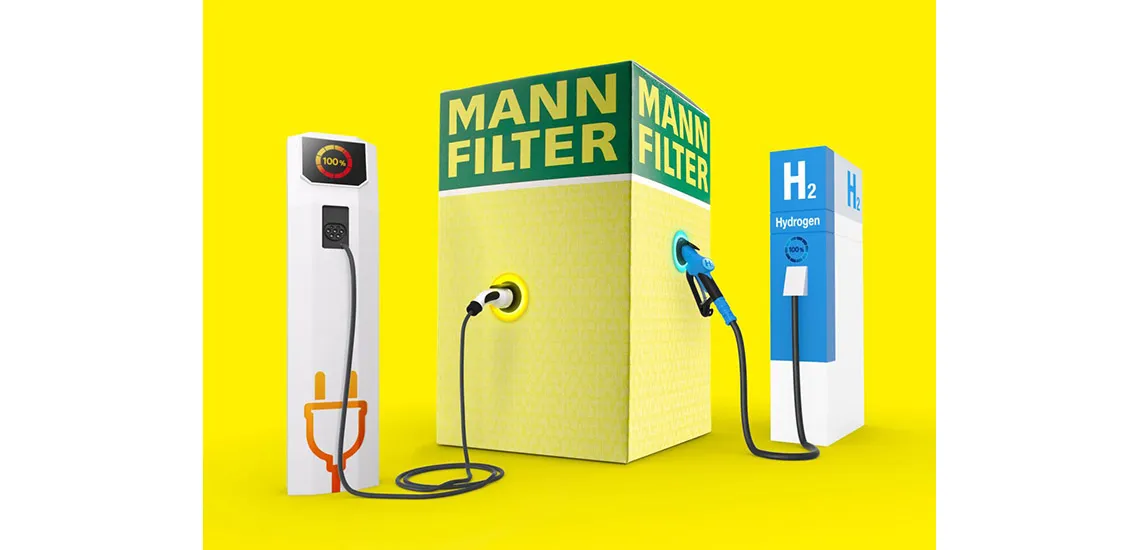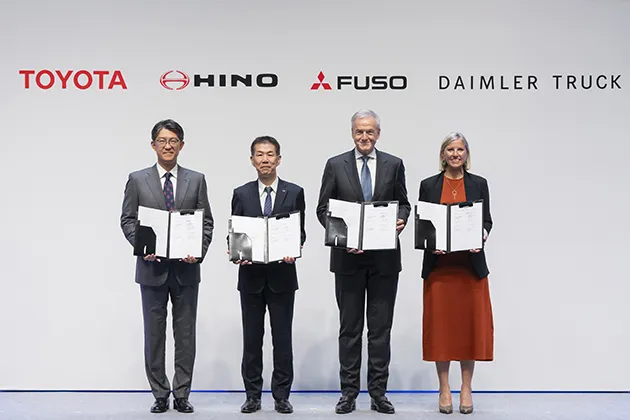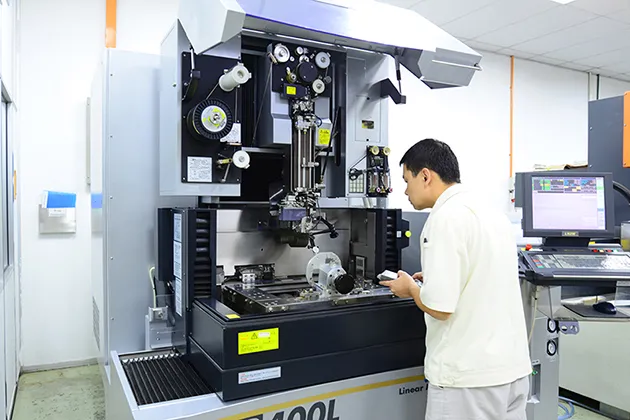In the second part of this series, MANN-FILTER discusses the electric axle and why filtration is so important for e-mobility.
Q & A with Dr. Michael Harenbrock,Principal Expert E-Mobility, MANN+HUMMEL
MANN+HUMMEL applies decades of filtration experience to the requirements of electromobility. But is filtration even necessary for electromobility?
Dr. Michael Harenbrock, Principal Expert E-Mobility at MANN+HUMMEL, explains: “In this context, it is important to separate what is useful from what is harmful. As is the case with conventional drives, the components of electric vehicles must be protected from contamination and wear in order to ensure optimal performance. We do this in two ways: with established products – and with future-proof innovations. With our high-quality filtration solutions, we extend and optimise the service life and performance of fuel cells, electric axles, and batteries. While electric vehicles do have fewer powertrain components, these parts also need to be checked and replaced over time. This creates opportunities for the automotive aftermarket and our premium filtration brand MANN-FILTER, whose portfolio already includes filters for electric vehicle maintenance.”
The following filtration solutions are used for the different drive types:
Filtration requirements of fuel cells
Fuel cells are extremely sensitive to particles, corrosive gases, and water in the intake air as well as to impurities in the cooling circuit. These impurities include, for example, dust particles that obstruct the flow of gas and can form deposits on cell membranes. Corrosive gases can severely damage the catalyzer, thus causing a significant decrease in performance within the fuel cell system. Effective filtration is therefore essential for protecting sensitive components.
Harenbrock explains: “Our cathode air cleaner ensures that intake air is clean. This cleaner has a particulate filter layer that separates solid particles from the intake air, while its tailor-made activated charcoal layers adsorb harmful gases, like sulfur dioxide (SO2), nitrogen oxide (NOX), and ammonia (NH3). This protects the fuel cell’s catalyzer from being irreversibly damaged, which shortens the system’s service life. Our ion exchange filter removes positively and negatively charged ions from the cooling fluid, keeping the cooling fluid’s conductivity as low as possible to prevent short circuits in the fuel cell stack. Our coolant particulate filter is designed to protect the coolant pump from wear and prevent blockages in narrow cooling ducts within the fuel cell stack. This filter removes harmful particles from the cooling circuit.”
E-axle filtration
When the electric motor, power electronics, and transmission are integrated into one compact unit, these components are referred to as e-axles or electric drive units. This compact design enables the use of one joint fluid circuit for all three components, which cools the electric motor and power electronics and also lubricates the transmission. Passenger cars usually have a basic reduction gear, while commercial vehicles normally have a multi-speed transmission that often requires better filtration to protect the hydraulics. “We also offer tailor-made filtration solutions for this, such as the MANN-FILTER W 7071 transmission oil filter for the Mercedes-Benz eActros 300 and eActros 400″, Harenbrock adds.
Filtration solutions for battery systems
In battery-electric vehicles, the battery system is the most valuable component. This system must be protected from water and dust, and it must be operated within its optimal temperature range to maintain its maximum charging capacity. Higher temperatures will decrease the battery’s performance, and severe overheating will even destroy the battery cell. There are two approaches for cooling battery systems: air cooling or liquid cooling.
With air-cooled systems, MANN+HUMMEL uses cooling air particulate filters to protect the fans and battery system from dirt particles in the cooling air. For these filters, developers use materials and knowledge from cabin air filters. The coolant in liquid-cooled batteries – often a mixture of water and glycol – may contain harmful particles that originate, for example, from the surfaces of components in the cooling circuit or from the assembly process. These particles may cause the cooling ducts to become blocked, thus causing a loss in pressure and overheating of the battery. The coolant particulate filter developed by MANN+HUMMEL efficiently separates dirt particles from the coolant in order to protect the system from pressure loss, wear, and overheating.
An opportunity for workshop business is a given with electric vehicles through an annual change of cabin air filters. The reason for this being that this component is used both in combustion engines as well as electric vehicles to protect drivers and passengers alike from harmful particles and pollutant gases in the intake air. For example, the innovative MANN-FILTER FreciousPlus has a biofunctional coating that binds to harmful substances, allergens, and mold spores, improving the air quality of the vehicle cabin. To maintain the filter’s performance, however, it must be replaced every 15,000 kilometers or once per year. With more than 96 per cent market coverage in Europe, MANN-FILTER offers cabin air filters in original equipment quality for almost every electric car.
“With our wide range of filters for alternative drives, we demonstrate that there will be a continued need for filtration in the future, which represents maintenance potential for workshops,” Harenbrock concludes.
In the third and final part of this series on electromobility, MANN+HUMMEL will reveal the filtration solutions that will play a role in the future. These include, for example, multi-stage cabin air filter systems featuring highly efficient HEPA filters, which further improve the air quality of the vehicle cabin.








